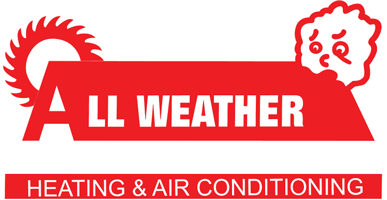
We spend a lot of time in our homes. In fact, the Environmental Protection Agency (EPA) has approximated being indoors accounts for 90% of our time. Having said that, the EPA also says your indoor air can be three to five times worse than outdoors.
That’s due to the fact our homes are securely sealed to increase energy efficiency. While this is fantastic for your utility bills, it’s not so fantastic if you’re amid the 40% of the population with respiratory allergies.
When outdoors ventilation is restricted, pollutants like dust and volatile organic compounds (VOCs) could get trapped. As a consequence, these pollutants may irritate your allergies.
You can boost your indoor air quality with clean air and usual dusting and vacuuming. But if you’re still having issues with symptoms when you’re at your house, an air purifier might be able to help.
While it can’t remove pollutants that have gotten trapped in your furnishings or flooring, it might help purify the air traveling across your residence.
And air purification has also been scientifically proven to help lower some allergic symptoms, according to the American College of Allergy, Asthma and Immunology. It may also be appropriate if you or a loved one has a lung condition, such as emphysema or COPD.
There are two models, a portable air purifier or a whole-home air purifier. We’ll go over the differences so you can figure out what’s correct for your residence.
Whole-House Air Purifier vs. Portable Air Purifiers
A portable air purifier is for a lone room. A whole-house air purifier accompanies your home comfort unit to treat your complete home. Some types can clean independent when your HVAC unit isn’t on.
What’s the Best Air Purifier for Allergies?
Seek a model with a High Efficiency Particulate Air (HEPA) filter. HEPA filters are placed in hospitals and deliver the greatest filtration you can find, as they trap 99.97% of particles in the air.
HEPA filters are even more powerful when installed with an ultraviolet (UV) germicidal light. This powerful combination can wipe out dust, dander, pollen and mold, all of which are common allergens. For the best in air purification, think over a unit that also has a carbon-based filter to decrease household odors.
Avoid using an air purifier that makes ozone, which is the top element in smog. The EPA advises ozone might worsen respiratory issues, even when discharged at low settings.
The Allergy and Asthma Foundation of America has made a listing of questions to consider when getting an air purifier.
- What can this purifier extract from the air? What doesn’t it extract?
- What’s its clean air delivery rate? (A higher figure means air will be cleaned more quickly.)
- How frequently does the filter or UV bulb need to be switched]? Can I finish that without help?
- How much do replacement filters or bulbs cost?
How to Reduce Seasonal Allergy Symptoms
Want to get the {top|most excellent|best] performance from your new air purification system? The Mayo Clinic suggests completing other measures to limit your exposure to things that can trigger seasonal allergies.
- Stay inside and keep windows and doors shut when pollen counts are high.
- Have other household members trim the lawn or pull weeds, since these tasks can worsen symptoms. If you must do this work alone, you may want to consider using a pollen mask. You should also rinse off right away and put on clean clothes once you’re finished.
- Avoid stringing up laundry outdoors.
- Run air conditioning while indoors or while you’re on the road. Consider installing a high efficiency air filter in your home’s home comfort system.
- Equalize your house’s humidity levels with a whole-house dehumidifier.
- Hardwood, tile or linoleum are the suggested flooring types for lowering indoor allergens. If your home has carpet, install a HEPA filter on your vacuum cleaner.
Let Our Professionals Take Care of Your Indoor Air Quality Needs
Prepared to move forward with installing a whole-house air purifier? Give our experts a call at 256-801-4701 or contact us online to get an appointment. We’ll help you find the best unit for your home and budget.
